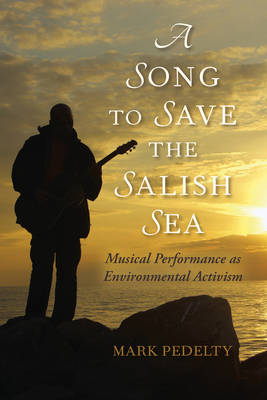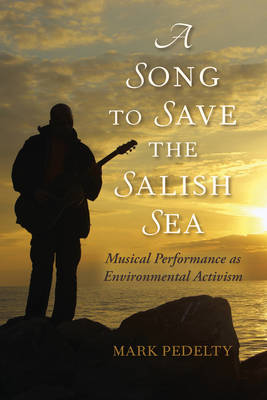
- Retrait gratuit dans votre magasin Club
- 7.000.000 titres dans notre catalogue
- Payer en toute sécurité
- Toujours un magasin près de chez vous
- Retrait gratuit dans votre magasin Club
- 7.000.0000 titres dans notre catalogue
- Payer en toute sécurité
- Toujours un magasin près de chez vous
Description
On the coast of Washington and British Columbia sit the misty forests and towering mountains of Cascadia. With archipelagos surrounding its shores and tidal surges of the Salish Sea trundling through the interior, this bioregion has long attracted loggers, fishing fleets, and land developers, each generation seeking successively harder to reach resources as old-growth stands, salmon stocks, and other natural endowments are depleted. Alongside encroaching developers and industrialists is the presence of a rich environmental movement that has historically built community through musical activism. From the Wobblies' Little Red Songbook (1909) to Woody Guthrie's Columbia River Songs (1941) on through to the Raging Grannies' formation in 1987, Cascadia's ecology has inspired legions of songwriters and musicians to advocate for preservation through music.
In this book, Mark Pedelty explores Cascadia's vibrant eco-musical community in order to understand how environmentalist music imagines, and perhaps even creates, a more sustainable conception of place. Highlighting the music and environmental work of such various groups as Dana Lyons, the Raging Grannies, Idle No More, Towers and Trees, and Irthlingz, among others, Pedelty examines the divergent strategies--musical, organizational, and technological--used by each musical group to reach different audiences and to mobilize action. He concludes with a discussion of "applied ecomusicology," considering ways this book might be of use to activists and musicians at the community level.
Spécifications
Parties prenantes
- Auteur(s) :
- Editeur:
Contenu
- Nombre de pages :
- 304
- Langue:
- Anglais
- Collection :
Caractéristiques
- EAN:
- 9780253022684
- Date de parution :
- 03-10-16
- Format:
- Livre relié
- Format numérique:
- Genaaid
- Dimensions :
- 157 mm x 234 mm
- Poids :
- 498 g

Les avis
Nous publions uniquement les avis qui respectent les conditions requises. Consultez nos conditions pour les avis.






